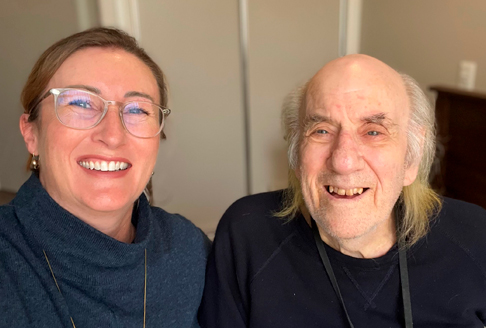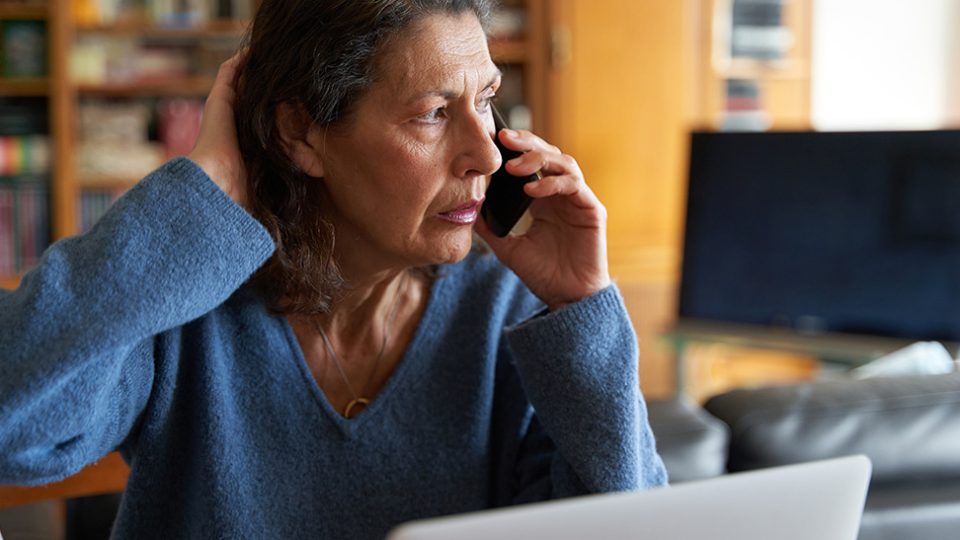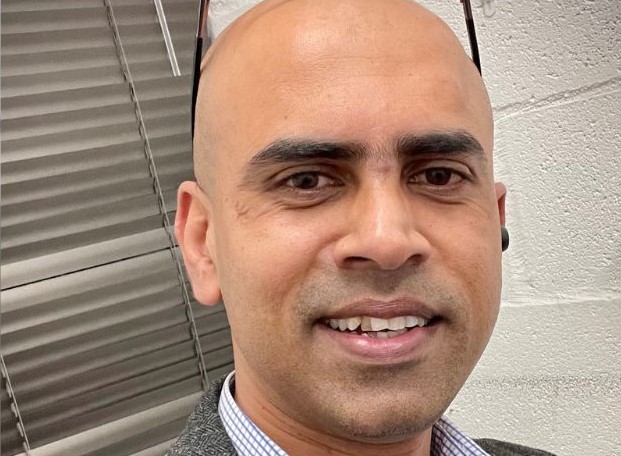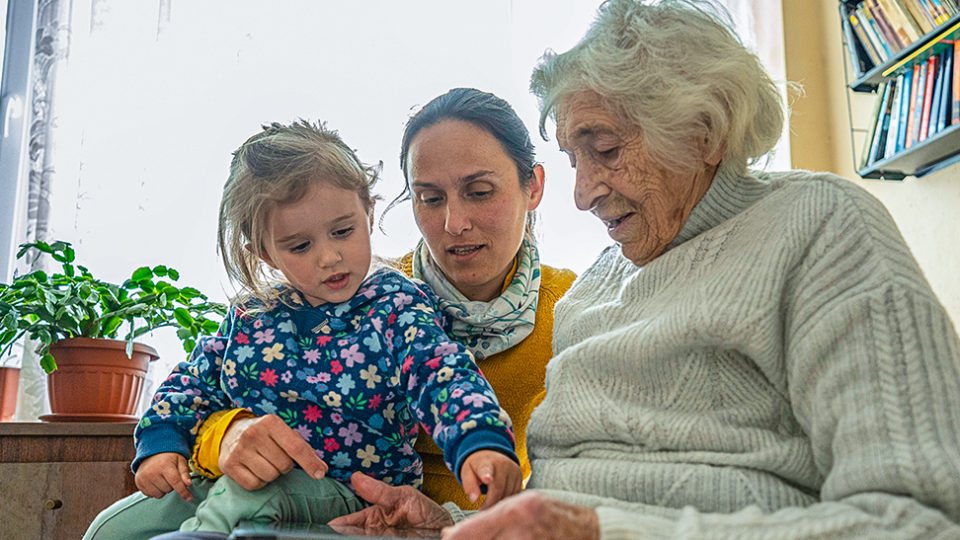National Volunteers Week 2023 Meet Digital Stories volunteer, Jo Lister
- 12 May 2023

An occupational therapist by profession, Jo’s motivation for currently studying counselling (with an aim to practice within the aged care setting) explains why she is such a great fit for her current volunteering role at Baptcare – namely, to befriend and create a digital story of Hedley Sutton resident, John.
“If people don’t feel seen or understood, then change is more difficult. If people have their emotions validated, it’s easier for them to go forward and make changes in their life,” said Jo.
Jo definitely makes John feel seen and heard. She is clearly one of the change makers upon whom this National Volunteer Week is based.
What is your professional background?
I am an Occupational Therapist (OT) and am currently studying a Graduate Diploma in Counselling.
Why Counselling?
I’ve always been drawn to the talk-therapy side of my practice. I find it really makes a difference for clients and is rewarding, so I’m developing my skills in this area. I’m loving the study!
What drew you to volunteering?
I wanted to give something back. My children are older now, so I felt that I had the time and space to do some dedicated volunteering.
Have you done any volunteering in the past?
I have done two weeks volunteering in a Sri Lankan kindergarten and taken on voluntary roles at my children’s school, but nothing ongoing.
This Swinburne Digital Story project is my longest volunteering commitment.
What is involved in creating the digital story?
I’ve made a minimum commitment of 2.5 hours each week. In addition to the weekly 90-minute training at Swinburne on reminiscence therapy and digital storytelling skills, I spend an hour visiting with John at Hedley Sutton and hearing his stories. Finally, I will create a digital story product for John.
What drew you to the Digital Story Program Aged Care?
As a Graduate Diploma of Counselling student at Swinburne, I received an email from Swinburne advertising the project. I started volunteering in January 2023, but the recruitment process started in late 2022.
Most of my career has been working with older adults and it’s the space I want to work in as a counsellor.
I’ve spent a lot of time in residential aged care (RAC) communities and can see the incredible value digital stories can give to the RAC staff, as well as the resident.
Research has shown that the digital story has the potential for the staff to view the resident profiled as a whole person – someone with a rich history and a life before they moved into residential care, and hopefully that helps the staff and resident to find a connection. It also acts as a person-centred training tool.
What do you enjoy about volunteering with the Digital Story Program Aged Care?
I really believe that the digital stories have potential to make a difference.
I sit for an hour and listen to John and hope that he enjoys sharing his stories. It’s wonderful that he gets to have a full identity and to be reminded of the things he’s achieved and to be actively heard and seen.
I enjoy spending time with John. We laugh and joke together and have an easy rapport. (I even tease him a bit!). I also enjoy hearing him reminisce about his life and think it’s a powerful thing for him to be able to tell his stories.
Why do you like volunteering?
It feels good!
I feel like it’s a little thing I can do that might make a difference to someone’s life and that feels good.
It’s not a huge time commitment and even if it makes a little difference, that feels worthwhile.
Community news
-

Tips for dealing with life in the sandwich generation
This is part two in our blog series on the sandwich generation. Here are some tips for dealing with the carer’s squeeze experienced by a growing number of Australians, particularly women. Key points: Summary of challenges facing the sandwich generation Tips for dealing with the challenges System reforms needed
- 11 Jul 2025
-

Meet Suraj | Hospitality Manager Residential Aged Care
What makes a residential aged care community truly feel like home? It’s the perfect blend of a warm, inviting atmosphere, devoted and compassionate staff, and thoughtfully crafted meals that foster an undeniable sense of belonging. Today we meet Suraj Ligade, Baptcare’s Hospitality Manager, to explore how his passion for care and culinary excellence nourishes both the bodies and spirits of our treasured aged care residents.
- 10 Jul 2025
-

The sandwich generation phenomenon unpacked
Welcome to the first of two blogs on the theme of the sandwich generation in Australia. In this one, we’ll cover the definition of the sandwich generation, the different types of caring that fall within it and some of the issues those in the sandwich generation face. The second blog will cover tips for dealing with life in the sandwich generation
- 02 Jul 2025
